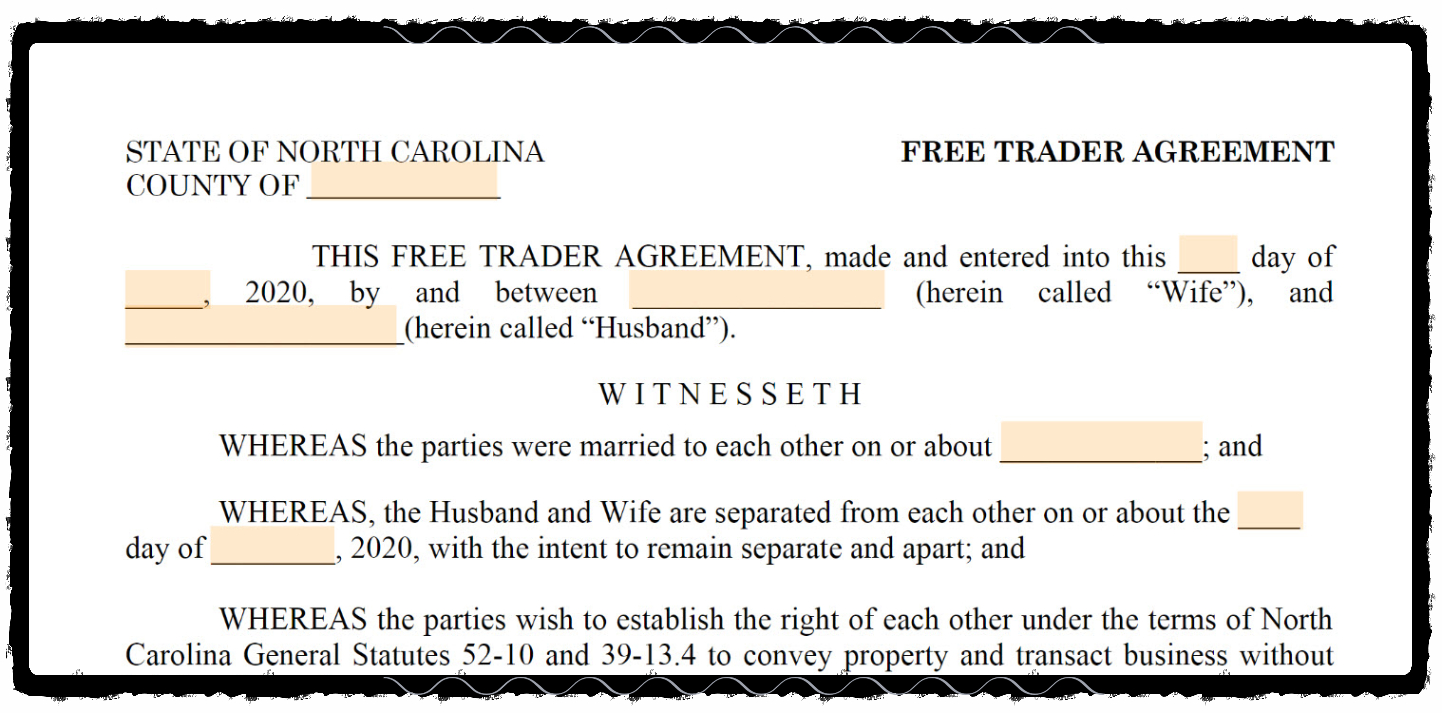In North Carolina, a married couple is presumed to have a joint interest in real property that is bought or sold during the marriage. A deeper explanation on that topic can be found in a previous post. One way to negate this presumption is by signing a free trader agreement. A free trader agreement, or FTA, is a document that allows either spouse to acquire property without the permission or joinder of the other. The FTA can be a stand-alone document or incorporated into a separation, prenuptial, or postnuptial agreement.
Free trader agreements often apply to the following scenarios:
Separation
Because North Carolina requires spouses to be separated for one (1) year before filing for divorce, the most common use of an FTA is during the period of separation. Since the parties are still legally married, signing a free trader agreement, or incorporating one into a separation agreement, is the only way to allow either spouse to successfully obtain or convey property without the other.
Sole Borrower
Mortgage lenders and banks will usually require a free trader agreement to be recorded prior to lending money to a borrower who is married but intends to purchase property in their name alone. This ensures that bank has priority in the event of foreclosure by preventing the non-borrowing spouse from claiming a marital interest in the home. Additionally, a recorded FTA will satisfy any requirements by the title insurance company to issue a policy without an exclusion for any marital interest.
It is important to note that a free trader agreement is not always necessary or advisable. For instance, signing an FTA will not waive any marital interest in property already owned prior to signing. Always seek the advice of an attorney to determine if a free trader agreement is the best option for you.
Revolution Law Group is located in Greensboro, NC, and serves individuals and small businesses throughout the Triad and surrounding areas. To contact us please visit Revolution.law or call 336-333-7907.
The information included here is for informational purposes only, is not exhaustive of all considerations when creating documents, is not intended to be legal advice, and should not be relied upon for that purpose. We strongly recommend you consult with an attorney and do not attempt to create your own documents.

